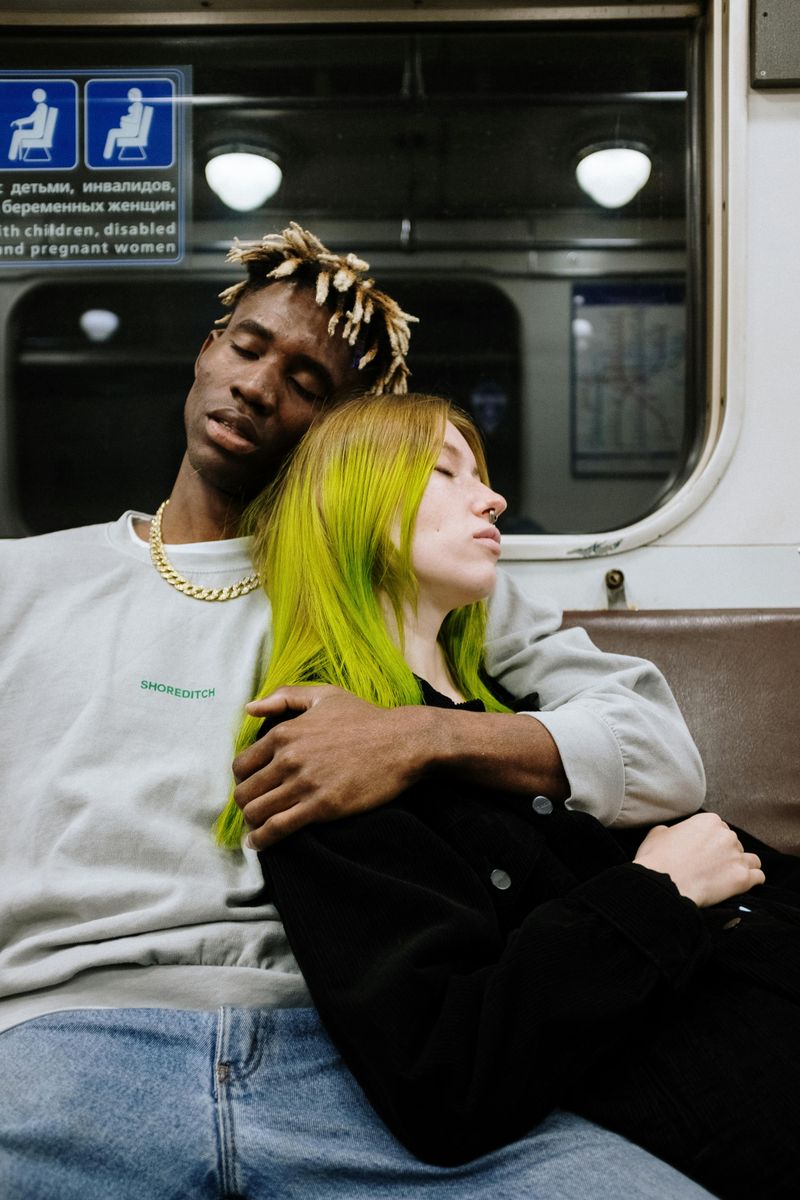Dating a Man Who’s Never Been in Love: 21 Signs You’re His First Real Relationship

So you’ve met a man who swears he’s never been in love—but he’s swooning over you like a rom-com montage. Cute, right? Maybe. Or maybe you’re pioneering new territory with someone who’s never learned how real relationships actually work
Before you crown this chemistry as destiny, check for these signs that you’re his first real relationship—and decide whether he’s ready to grow with you, not just glow at you.
1. He Has No Real Ex Stories—Only “Crazy” Ones

It always starts with dramatic tales about past women who were “too much,” “obsessed,” or “crazy,” as if he was the calm, blameless protagonist. You’ll notice there’s never a lesson learned, no “I realized I should’ve communicated better” moment. Just a highlight reel of other people’s mistakes and his heroic escape. That’s a tell.
In mature love, people can name their own missteps without collapsing into shame. Self-reflection is the currency of growth. When he never owns even 10% of the story, he’s telling you he hasn’t studied his patterns. That makes you the test lab.
Ask curious questions: What would he do differently now? What did he need then that he didn’t ask for? If he dodges, believe the pattern. You’re not the coach, professor, and therapist combined.
2. He Talks About Love Like a Movie Plot, Not Real Life

Grand gestures thrill him: surprise trips, fireworks, sweeping declarations after date three. That’s intoxicating—and suspicious. There’s no mention of grocery runs, calendaring therapy, or negotiating chores when both of you are exhausted. The fantasy is glossy; the maintenance manual is missing.
Real love is a series of small, unsexy choices repeated on purpose. It’s packing snacks, remembering allergies, checking in about that awkward text. If he thinks chemistry will solve conflict, boredom, and bad Wi‑Fi, he’s never actually built intimacy—he’s just admired it.
Invite him into the mundane: plan errands, split responsibilities, talk budgets. See if he leans in or zones out. If the plot only advances during dramatic scenes, you’re not in a relationship—you’re in a pilot episode destined for cancellation.
3. He Panics When Conversations Get Deep

The minute feelings enter the chat, humor bursts in like a glitter bomb. He suddenly needs a snack, a nap, or a meme. Anything to avoid naming fear, values, or hope. You’ll notice how fast surface talk feels safe, while depth feels like free-fall.
Depth requires tolerance for discomfort and the belief that vulnerability won’t kill connection. If he’s never practiced, his nervous system sounds the alarm. Jokes become parachutes, subject changes become exits, and you’re left dangling mid-sentence.
Try micro-doses of depth: one feeling, one need, one ask. If he sprints, don’t chase—reflect and pause. Growth means he learns his fear won’t detonate the relationship. If months pass and he still evades, you’re dating a charming flotation device, not a partner who can dive.
4. He’s Emotionally Present Only When It’s Fun

Dates sparkle. Texts zing. Flirting is effortless. But when you’re sick, grieving, stressed, or just low, his presence evaporates into vague excuses and delayed replies. Good-time energy isn’t the same as care, and you can feel the drop-off in your body.
Support means steady warmth, not just party confetti. Consistency during hard moments is a love language for adults. If he only shows up for dopamine, he’s chasing mood, not investing in the bond. That’s a hobbyist approach to intimacy.
Make concrete requests during un-fun times: “Can you check in tomorrow?” “Could you bring soup?” Track follow-through, not promises. If the bandwidth shrinks right when it matters, you’re an activity, not a partner. Relationships need all-weather gear, not just festival outfits.
5. He Doesn’t Know How to Comfort You

Advice rockets out of him like confetti cannons: “Calm down.” “Be positive.” “Don’t overthink it.” None of it lands. Listening isn’t happening. Your nervous system hears dismissal, not care, and your feelings start to shrink in their chair.
Comfort is a skill, not a personality trait. It looks like: “I hear you,” “That sounds hard,” “Do you want solutions or support?” If he’s never loved deeply, he hasn’t learned the choreography of attunement. He’s doing crowd control, not connection.
Coach the basics once, maybe twice. Offer scripts he can borrow. Then watch for effort and repair. If empathy remains a foreign language, your heart will keep needing subtitles—and that’s exhausting. Real love learns your dialect of soothing and practices it.
6. He Avoids Labels Like They’re Traps

“Why define it?” sounds breezy until you realize clarity is how adults coordinate lives. Label-phobia often masks fear of accountability: no label, no promises; no promises, no expectations. Commitment talk makes him itchy, so the DTR keeps getting postponed.
Healthy commitment isn’t a prison; it’s a map. Labels help set agreements about exclusivity, time, and care. If he argues that naming something ruins it, he’s protecting his escape routes. Mystery is romantic; confusion is not.
State your standards plainly and kindly. Invite clarity by a timeline, not an ultimatum. If he resists indefinitely, believe him: he wants the experience of you without the responsibilities that come with you. Freedom for him shouldn’t mean uncertainty for you.
7. He’s Only Available on His Terms

Plans seem magically aligned with his schedule, his energy, his hobbies. Your needs become optional, reschedulable, or quietly downgraded. That might look like last-minute cancellations or “We’ll see” answers to your requests. You’re orbiting his calendar.
Mutuality means both worlds matter. Compromise is measured in how inconvenience is shared. If he’s new to real love, he assumes flexibility is your job, not his. That’s not partnership; that’s programming support.
Try swapping defaults: pick times, choose restaurants, set travel plans. Track his adaptability. A partner will stretch; a consumer will sulk. If everything depends on his convenience, the relationship has a single user license—and you’re the add-on.
8. He’s Clueless About Your Inner World

Birthdays? He remembers. Your big presentation? Not so much. He’s charming with surface details but misses the heartbeat stuff—your fears, ambitions, family tensions. That forgetfulness isn’t malice; it’s untrained attention.
Loving someone means tracking their inner weather. It’s remembering that your sister’s visit is complicated, or that networking events spike your anxiety. People who’ve never built intimacy think facts are enough. They don’t realize meaning is the map.
Offer breadcrumbs: “This matters to me because…” Then watch retention and initiative. Does he follow up, set reminders, show curiosity? If not, your soul will feel like a podcast he plays on 1.5x while scrolling. You deserve someone who takes notes.
9. He Treats Vulnerability as Weakness

Feelings make him fidget, and tears trigger jokes or lectures. He might call emotional men “soft” and women “too sensitive.” That’s not confidence—it’s defensiveness. Emotional literacy hasn’t been modeled for him, so he armors up and calls it strength.
Real resilience includes naming needs and receiving care. When vulnerability is punished, intimacy withers. If he can’t admit fear or hurt, conflict becomes a gladiator arena instead of a repair shop. You’ll feel lonely even when you’re not alone.
Model courageous disclosure and ask for reciprocity in small bites. Celebrate attempts, not perfection. But if empathy is mocked repeatedly, protect your heart. Love can invite healing, but it cannot fix someone who worships toughness over truth.
10. He Confuses Possessiveness With Love

“Where are you?” pings all day, but real check-ins are rare. His jealousy dresses up as devotion, yet it polices more than it protects. Rules appear where conversations should be. Control masquerades as care.
Healthy love respects autonomy and negotiates boundaries. Possessiveness is about anxiety, not intimacy. If he’s never learned secure attachment, he’ll use surveillance to calm insecurity. That soothes him temporarily while suffocating you steadily.
Hold the line: transparency by consent, not coercion. Suggest mutual agreements that respect both freedoms. If he equates your independence with disloyalty, that’s not romance—it’s a red flag bouquet. Love wants to hold your hand, not your passport.
11. He Thinks Love Means Never Arguing

Disagreements send him into shutdown or dramatic exits. He treats conflict as proof of incompatibility rather than a path to understanding. Without a fight, intimacy can’t get its driver’s license—and he keeps hitchhiking instead.
Healthy couples argue with rules: no name-calling, take breaks, seek repair. If he’s new to love, he mistakes discomfort for danger and bails. That preserves peace but sacrifices closeness. Silence is not resolution; it’s avoidance with good posture.
Normalize conflict: share repair rituals, set timers, do post-argument debriefs. Invite him to stay in the room, literally and emotionally. If he keeps ghosting mid-fight, you’re arguing alone, which isn’t an argument—it’s a monologue.
12. He Doesn’t Apologize—He Just Waits It Out

After a blowup, silence rolls in like fog. Eventually he acts normal, as if time erased impact. There’s no naming the hurt, no responsibility, no plan to change. You feel relief and resentment at once.
Apologies are bridges, not decorations. A real one includes ownership, empathy, and behavior shifts. People inexperienced with love confuse calm with closure and hope the clock does the labor. It doesn’t; it just stores debt.
Ask for repair explicitly. If he balks, explain what “sorry” looks like to you—words, understanding, and follow-through. But don’t become the apology architect for two. If repair never arrives, the relationship will be built on potholes.
13. He’s Overly Idealistic About “The One”

He’s waiting for a soulmate who just fits—no friction, no mess, no compromise. The moment reality shows up, he second-guesses everything. That’s not romance; that’s perfectionism dressed in glitter. Humans don’t interlock like puzzle pieces; they collaborate.
Believing in effortless destiny keeps him from practicing skills: negotiation, repair, patience. When the honeymoon haze lifts, he mistakes growth pains for misalignment. Then he bails early, chasing the next “meant to be.”
Offer a different myth: the one you build, not the one you find. If he leans into practice and process, hope lives. If he clings to fantasy, you’ll be a chapter titled “Almost.” Choose partners who choose building over browsing.
14. He Has No History of Showing Up for People

Friends love his jokes but can’t recall him driving them to the airport or sitting through hospital hours. Family stories? Fun chaos, not steady care. His highlight reel lacks scenes of reliability under pressure.
Showing up is a muscle, strengthened by practice. If he’s never had to be someone’s rock, he’ll fumble when it’s your turn. That doesn’t make him cruel—just inexperienced. But in relationships, inexperience still costs.
Notice patterns: Does he remember birthdays without reminders, volunteer help, follow through? Ask his people, gently. If there’s no track record of presence, you’re betting on potential. Invest only if he’s eager to train and you’re willing to risk the learning curve.
15. He’s Great at the Chase, Awful at the Relationship

In the beginning, he’s dazzling—dates planned, texts poetic, surprises abundant. Then stability arrives and his effort freefalls. Dopamine was the driver; now he’s dozing in the passenger seat while you steer.
Chase skills aren’t couple skills. The latter involves consistency, maintenance, and care during ordinary Tuesdays. If he’s only energized by pursuit, he’ll unconsciously recreate distance to feel alive—hot-cold cycles disguised as passion.
Recalibrate the game: appreciate steady gestures, set rhythms, measure reliability. If effort returns only when you pull away, that’s addiction to adrenaline, not love. Choose partners who court you during the boring parts too.
16. He Doesn’t Plan a Future That Includes You

Future talk sounds like solo travel, solo career moves, solo dreams. You appear as a guest star, not a co-writer. There’s no “we” language, no logistics that braid your lives. It’s flattering to be adored today, unnerving to be invisible tomorrow.
Partnership forwards time together. That might be as simple as concert tickets months out or talking holidays and budgets. If he won’t imagine next season with you, it’s because he doesn’t know how—or doesn’t want—to share steering.
Ask for small future plans and observe. Hesitation is data. If he can’t weave you into the calendar, he can’t weave you into the life. You deserve a storyline, not cameos.
17. He Treats Your Boundaries as Negotiable

“No” inspires debate, persuasion, or guilt-tripping. He frames your limits as obstacles rather than information. That’s not misunderstanding; that’s entitlement wearing cologne. The cost is your self-trust.
In real love, boundaries are bridges to sustainability. They protect desire and prevent resentment. If he’s never done intimacy, he might think closeness means unlimited access. It doesn’t. Access is earned through respect.
State your boundary once, then enforce it. Reward respect, not pressure. If pushback persists, consider it diagnostic: he’s prioritizing his comfort over your safety. Love that asks you to abandon yourself isn’t love; it’s consumption.
18. He Needs Constant Validation but Gives Little Back

Compliments flow toward him like a river he refuses to dam. He craves reassurance on looks, status, and performance. Meanwhile your wins skim past without celebration, and your insecurities meet silence. The imbalance becomes a slow drip of loneliness.
Validation is fuel, but in partnership it must circulate. People inexperienced with love often haven’t learned to nurture while receiving. They confuse attention with affection and forget that praise is a two-way street.
Model reciprocity: ask, “Want comfort or cheer?” Offer the same. Track whether he notices your efforts and mirrors them. If not, you’ll be running an emotional gas station with no tips jar. Close the pump if he won’t pay in kind.
19. He’s More Comfortable With Physical Intimacy Than Emotional Intimacy

Touch is easy; talk is hard. He’ll initiate closeness in bed but dodge conversations about desires, fears, or expectations. The body becomes a shortcut he takes to skip the map. You feel connected and unseen at the same time.
Emotional intimacy sets the stage for safer, richer physical intimacy. Without it, sex can be a smokescreen for avoidance. If he’s never built the emotional scaffolding, he leans on chemistry like a crutch.
Bridge the two: aftercare conversations, consent check-ins, desire mapping. If vulnerability keeps getting rerouted to the bedroom, pause. Lovers who can’t talk can’t truly listen—especially when it matters most.
20. He Doesn’t Know How to Repair After a Fight

Once the storm passes, he suggests a movie or cuddling, skipping the post-mortem. There’s no “What hurt?” or “How can we do better?” Just a vibes-based reset that leaves fractures under the rug. Peace without repair is a truce, not healing.
Repair is a practiced ritual: own impact, validate feelings, adjust behavior. Lack of experience makes him fear rehashing will reignite conflict. In truth, avoiding the debrief guarantees repeat episodes.
Propose a structure—three questions, fifteen minutes, mutual commitments. Praise progress. But if repair remains off-limits, understand the cost: the relationship will accumulate unprocessed grief until affection has nowhere to land.
21. He Treats Love as Something That “Just Happens,” Not Something You Build

Fate, chemistry, timing—he trusts those and shrugs at effort. When sparks fade, he interprets it as the end, not a cue to tend the fire. That mindset keeps him a tourist in intimacy, never a resident.
Built love is daily practice: appreciation, planning, repair, play, rest. It’s a craft. People new to real love underestimate the skills involved and overestimate magic. Magic helps; habits hold.
Invite him into co-creation: weekly check-ins, shared goals, tiny rituals. If he engages, there’s hope. If he waits for the universe to do dishes and solve conflict, you’ll be partnered with chance, not choice—and chance is a flaky date.

Comments
Loading…